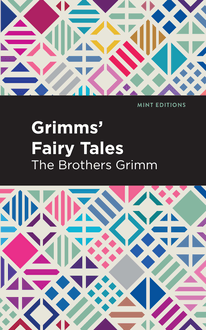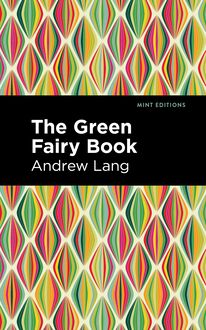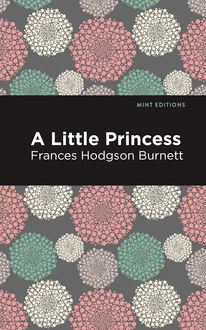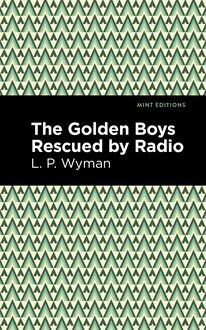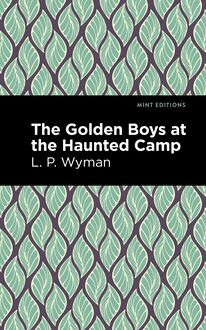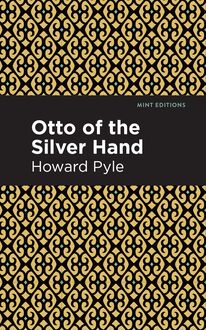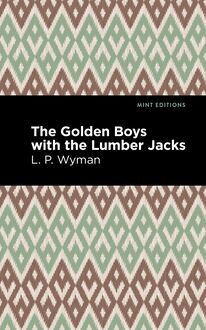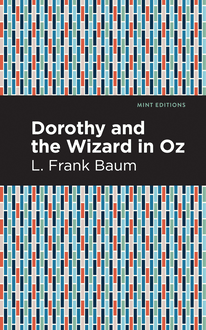-
 Univers
Univers
-
 Ebooks
Ebooks
-
 Livres audio
Livres audio
-
 Presse
Presse
-
 Podcasts
Podcasts
-
 BD
BD
-
 Documents
Documents
-
- Cours
- Révisions
- Ressources pédagogiques
- Sciences de l’éducation
- Manuels scolaires
- Langues
- Travaux de classe
- Annales de BEP
- Etudes supérieures
- Maternelle et primaire
- Fiches de lecture
- Orientation scolaire
- Méthodologie
- Corrigés de devoir
- Annales d’examens et concours
- Annales du bac
- Annales du brevet
- Rapports de stage
La lecture à portée de main
Vous pourrez modifier la taille du texte de cet ouvrage
Découvre YouScribe en t'inscrivant gratuitement
Je m'inscrisDécouvre YouScribe en t'inscrivant gratuitement
Je m'inscrisEn savoir plus
Vous pourrez modifier la taille du texte de cet ouvrage
En savoir plus

Description
“One can argue over the merits of most books, and in arguing understand the point of view of one's opponent. One may even come to the conclusion that possibly he is right after all. One does not argue about The Wind in the Willows. […] The book is a test of character. […] It is a Household Book; a book which everybody in the household loves, and quotes continually; A book which is read aloud to every new guest and is regarded as the touchstone of his worth.” –A.A. Milne
The Wind in the Willows (1908) is a novel by Kenneth Grahame. Although it began as a series of interrelated stories the author would create for his son, Alastair, in order to read before bedtime, it soon took on a life of its own. Published after a series of rejections, The Wind in the Willows would go on to become not only a defining work of Edwardian English literature, but one of the most popular works of children’s fiction in the world.
Tired of spring cleaning, Mole emerges from his subterranean home to a world he has never taken the time to know. Shocked at first, he soon befriends a water vole named Rat who spends his days in a rowboat on the river. Rat not only instructs Mole on how to navigate the local waterways, but awakens in him a love and appreciation for nature. When they meet Mr. Toad, the wildly unpredictable heir of Toad Hall, their newly found peace all but disappears. Combining his obsession with motorcars with an insatiable desire for reckless driving, Mr. Toad soon forces Mole and Rat—alongside their friend Mr. Badger—to watch over him at Toad Hall in an effort to save him from himself. Taking advantage of their kind and caring natures, Mr. Toad escapes, only to be arrested, thrown in jail, and handed a twenty year sentence.
As The Wind in the Willows unfolds, another escape is staged, a home is saved, and the bonds of friendship are stretched to their limit. Kenneth Grahame’s novel is not just a book about animal life that is strangely like our own, but a book that remains, over a century after it was published, a classic work of literature for children and adults alike.
With a beautifully designed cover and professionally typeset manuscript, this edition of Kenneth Grahame’s The Wind in the Willows is a monumental literary work reimagined for modern readers.
Sujets
Informations
| Publié par | Mint Editions |
| Date de parution | 20 avril 2021 |
| Nombre de lectures | 0 |
| EAN13 | 9781513285191 |
| Langue | English |
| Poids de l'ouvrage | 1 Mo |
Informations légales : prix de location à la page 0,0450€. Cette information est donnée uniquement à titre indicatif conformément à la législation en vigueur.
Extrait
The Wind in the Willows
Kenneth Grahame
The Wind in the Willows was first published in 1908.
This edition published by Mint Editions 2020.
ISBN 9781513280172 | E-ISBN 9781513285191
Published by Mint Editions®
minteditionbooks.com
Publishing Director: Jennifer Newens
Design & Production: Rachel Lopez Metzger
Project Manager: Micaela Clark
Typesetting: Westchester Publishing Services
C ONTENTS I. T HE R IVER B ANK II. T HE O PEN R OAD III. T HE W ILD W OOD IV. M R . B ADGER V. D ULCE D OMUM VI. M R . T OAD VII. T HE P IPER AT THE G ATES OF D AWN VIII. T OAD ’ S A DVENTURES IX. W AYFARERS A LL X. T HE F URTHER A DVENTURES OF T OAD XI. “L IKE S UMMER T EMPESTS C AME H IS T EARS ” XII. T HE R ETURN OF U LYSSES
I
T HE R IVER B ANK
The Mole had been working very hard all the morning, spring-cleaning his little home. First with brooms, then with dusters; then on ladders and steps and chairs, with a brush and a pail of whitewash; till he had dust in his throat and eyes, and splashes of whitewash all over his black fur, and an aching back and weary arms. Spring was moving in the air above and in the earth below and around him, penetrating even his dark and lowly little house with its spirit of divine discontent and longing. It was small wonder, then, that he suddenly flung down his brush on the floor, said “Bother!” and “O blow!” and also “Hang spring-cleaning!” and bolted out of the house without even waiting to put on his coat. Something up above was calling him imperiously, and he made for the steep little tunnel which answered in his case to the gravelled carriage-drive owned by animals whose residences are nearer to the sun and air. So he scraped and scratched and scrabbled and scrooged and then he scrooged again and scrabbled and scratched and scraped, working busily with his little paws and muttering to himself, “Up we go! Up we go!” till at last, pop! his snout came out into the sunlight, and he found himself rolling in the warm grass of a great meadow.
“This is fine!” he said to himself. “This is better than whitewashing!” The sunshine struck hot on his fur, soft breezes caressed his heated brow, and after the seclusion of the cellarage he had lived in so long the carol of happy birds fell on his dulled hearing almost like a shout. Jumping off all his four legs at once, in the joy of living and the delight of spring without its cleaning, he pursued his way across the meadow till he reached the hedge on the further side.
“Hold up!” said an elderly rabbit at the gap. “Sixpence for the privilege of passing by the private road!” He was bowled over in an instant by the impatient and contemptuous Mole, who trotted along the side of the hedge chaffing the other rabbits as they peeped hurriedly from their holes to see what the row was about. “Onion-sauce! Onion-sauce!” he remarked jeeringly, and was gone before they could think of a thoroughly satisfactory reply. Then they all started grumbling at each other. “How S TUPID you are! Why didn’t you tell him—” “Well, why didn’t Y OU say—” “You might have reminded him—” and so on, in the usual way; but, of course, it was then much too late, as is always the case.
It all seemed too good to be true. Hither and thither through the meadows he rambled busily, along the hedgerows, across the copses, finding everywhere birds building, flowers budding, leaves thrusting—everything happy, and progressive, and occupied. And instead of having an uneasy conscience pricking him and whispering “whitewash!” he somehow could only feel how jolly it was to be the only idle dog among all these busy citizens. After all, the best part of a holiday is perhaps not so much to be resting yourself, as to see all the other fellows busy working.
He thought his happiness was complete when, as he meandered aimlessly along, suddenly he stood by the edge of a full-fed river. Never in his life had he seen a river before—this sleek, sinuous, full-bodied animal, chasing and chuckling, gripping things with a gurgle and leaving them with a laugh, to fling itself on fresh playmates that shook themselves free, and were caught and held again. All was a-shake and a-shiver—glints and gleams and sparkles, rustle and swirl, chatter and bubble. The Mole was bewitched, entranced, fascinated. By the side of the river he trotted as one trots, when very small, by the side of a man who holds one spell-bound by exciting stories; and when tired at last, he sat on the bank, while the river still chattered on to him, a babbling procession of the best stories in the world, sent from the heart of the earth to be told at last to the insatiable sea.
As he sat on the grass and looked across the river, a dark hole in the bank opposite, just above the water’s edge, caught his eye, and dreamily he fell to considering what a nice snug dwelling-place it would make for an animal with few wants and fond of a bijou riverside residence, above flood level and remote from noise and dust. As he gazed, something bright and small seemed to twinkle down in the heart of it, vanished, then twinkled once more like a tiny star. But it could hardly be a star in such an unlikely situation; and it was too glittering and small for a glow-worm. Then, as he looked, it winked at him, and so declared itself to be an eye; and a small face began gradually to grow up round it, like a frame round a picture.
A brown little face, with whiskers.
A grave round face, with the same twinkle in its eye that had first attracted his notice.
Small neat ears and thick silky hair.
It was the Water Rat!
Then the two animals stood and regarded each other cautiously.
“Hullo, Mole!” said the Water Rat.
“Hullo, Rat!” said the Mole.
“Would you like to come over?” enquired the Rat presently.
“Oh, its all very well to T ALK ,” said the Mole, rather pettishly, he being new to a river and riverside life and its ways.
The Rat said nothing, but stooped and unfastened a rope and hauled on it; then lightly stepped into a little boat which the Mole had not observed. It was painted blue outside and white within, and was just the size for two animals; and the Mole’s whole heart went out to it at once, even though he did not yet fully understand its uses.
The Rat sculled smartly across and made fast. Then he held up his forepaw as the Mole stepped gingerly down. “Lean on that!” he said. “Now then, step lively!” and the Mole to his surprise and rapture found himself actually seated in the stern of a real boat.
“This has been a wonderful day!” said he, as the Rat shoved off and took to the sculls again. “Do you know, I’ve never been in a boat before in all my life.”
“What?” cried the Rat, open-mouthed: “Never been in a—you never—well I—what have you been doing, then?”
“Is it so nice as all that?” asked the Mole shyly, though he was quite prepared to believe it as he leant back in his seat and surveyed the cushions, the oars, the rowlocks, and all the fascinating fittings, and felt the boat sway lightly under him.
“Nice? It’s the O NLY thing,” said the Water Rat solemnly, as he leant forward for his stroke. “Believe me, my young friend, there is N OTHING —absolute nothing—half so much worth doing as simply messing about in boats. Simply messing,” he went on dreamily: “messing—about—in—boats; messing—”
“Look ahead, Rat!” cried the Mole suddenly.
It was too late. The boat struck the bank full tilt. The dreamer, the joyous oarsman, lay on his back at the bottom of the boat, his heels in the air.
“—about in boats—or W ITH boats,” the Rat went on composedly, picking himself up with a pleasant laugh. “In or out of ’em, it doesn’t matter. Nothing seems really to matter, that’s the charm of it. Whether you get away, or whether you don’t; whether you arrive at your destination or whether you reach somewhere else, or whether you never get anywhere at all, you’re always busy, and you never do anything in particular; and when you’ve done it there’s always something else to do, and you can do it if you like, but you’d much better not. Look here! If you’ve really nothing else on hand this morning, supposing we drop down the river together, and have a long day of it?”
The Mole waggled his toes from sheer happiness, spread his chest with a sigh of full contentment, and leaned back blissfully into the soft cushions. “W HAT a day I’m having!” he said. “Let us start at once!”
“Hold hard a minute, then!” said the Rat. He looped the painter through a ring in his landing-stage, climbed up into his hole above, and after a short interval reappeared staggering under a fat, wicker luncheon-basket.
“Shove that under your feet,” he observed to the Mole, as he passed it down into the boat. Then he untied the painter and took the sculls again.
“What’s inside it?” asked the Mole, wriggling with curiosity.
“There’s cold chicken inside it,” replied the Rat briefly; “coldtonguecoldhamcoldbeefpickledgherkinssaladfrenchrollscresssan-dwichespottedmeatgingerbeerlemonadesodawater—”
“O stop, stop,” cried the Mole in ecstacies: “This is too much!”
“Do you really think so?” enquired the Rat seriously. “It’s only what I always take on these little excursions; and the other animals are always telling me that I’m a mean beast and cut it V ERY fine!”
The Mole never heard a word he was saying. Absorbed in the new life he was entering upon, intoxicated with the sparkle, the ripple, the scents and the sounds and the sunlight, he trailed a paw in the water and dreamed long waking dreams. The Water Rat, like the good little fellow he was, sculled steadily on and forebore to disturb him.
“I like your clothes awfully, old chap,” he remarked after some half an hour or so had passed. “I’m going to get a black velvet smoking-suit myself some day, as soon as I can afford it.”
“I beg your pardon,” said the Mole, pulling himself together with an effort. “You must think me very rude; but all this is so new to me. So—this—is—a—River!”
“T HE River,” corrected the Rat.
“And you really liv
-
 Univers
Univers
-
 Ebooks
Ebooks
-
 Livres audio
Livres audio
-
 Presse
Presse
-
 Podcasts
Podcasts
-
 BD
BD
-
 Documents
Documents
-
Jeunesse
-
Littérature
-
Ressources professionnelles
-
Santé et bien-être
-
Savoirs
-
Education
-
Loisirs et hobbies
-
Art, musique et cinéma
-
Actualité et débat de société
-
Jeunesse
-
Littérature
-
Ressources professionnelles
-
Santé et bien-être
-
Savoirs
-
Education
-
Loisirs et hobbies
-
Art, musique et cinéma
-
Actualité et débat de société
-
Actualités
-
Lifestyle
-
Presse jeunesse
-
Presse professionnelle
-
Pratique
-
Presse sportive
-
Presse internationale
-
Culture & Médias
-
Action et Aventures
-
Science-fiction et Fantasy
-
Société
-
Jeunesse
-
Littérature
-
Ressources professionnelles
-
Santé et bien-être
-
Savoirs
-
Education
-
Loisirs et hobbies
-
Art, musique et cinéma
-
Actualité et débat de société
- Cours
- Révisions
- Ressources pédagogiques
- Sciences de l’éducation
- Manuels scolaires
- Langues
- Travaux de classe
- Annales de BEP
- Etudes supérieures
- Maternelle et primaire
- Fiches de lecture
- Orientation scolaire
- Méthodologie
- Corrigés de devoir
- Annales d’examens et concours
- Annales du bac
- Annales du brevet
- Rapports de stage
